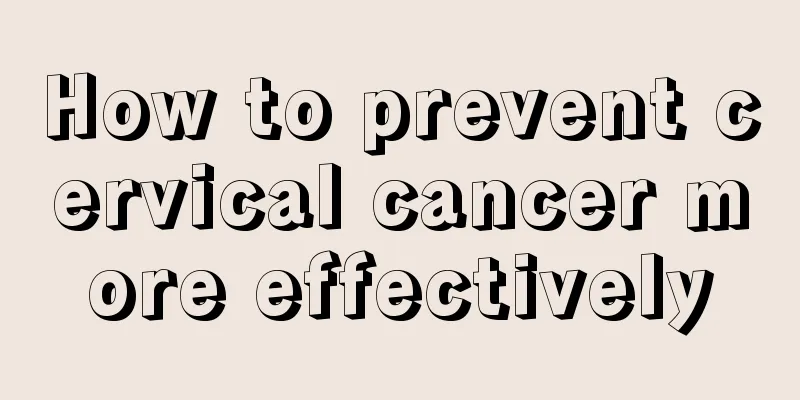What should be paid attention to after radiotherapy for nasopharyngeal carcinoma? How to prolong life after radiotherapy?

|
What should we pay attention to after radiotherapy for nasopharyngeal carcinoma? How to prolong life after radiotherapy? After completing radiotherapy, patients with nasopharyngeal carcinoma should be followed up regularly. According to research, local or neck recurrence after radiotherapy for nasopharyngeal carcinoma is mostly concentrated within two years after radiotherapy. The recurrence rate is particularly high in the first year after radiotherapy, and the recurrence rate is very low after more than 5 years. Within two years after radiotherapy, intensive follow-up examinations should be performed, and the following matters should be noted. 1. The patient should be reexamined monthly in the first year after radiotherapy, and an electronic nasopharyngoscope examination should be performed every three months. Electronic nasopharyngoscope examination can fully understand the condition of the nasopharynx and detect recurrent lesions at an early stage. 2. CT and MRI examinations: If recurrence is suspected, CT and MRI examinations are required to understand the extent of the recurrence and determine whether surgery is possible and what type of surgery to take. 3. EB virus antibody titer test. EB virus infection is related to nasopharyngeal carcinoma. After radiotherapy, the EB virus antibody titer should turn negative. If the EB virus antibody titer continues to be strongly positive after radiotherapy, or becomes strongly positive again after turning negative, recurrence should be highly suspected. After radiotherapy, ways to prolong life include: 1. Skin reaction: Dry or wet skin reaction may occur after radiotherapy. When wet reaction occurs, avoid irritating the skin, expose the skin, and apply cod liver oil containing chloramphenicol and hydrocortisone, or Heijiangdan topically. Applying 1% Curcuma zedoaria ointment topically can prevent skin damage. 2. Radiation jaw inflammation: Teeth should be cleaned before radiation and affected teeth should be extracted. Oral hygiene should be maintained and tooth extraction should be avoided within three years after radiotherapy. 3. Radiation oropharyngeal reaction: Throat pain, which can affect swallowing in severe cases. The throat can be sprayed with drugs containing the painkiller dicaine and antibiotics, or with Shuangliao Houfengsan. 4. Temporomandibular joint dysfunction: Difficulty in opening the mouth due to radiation damage and local fibrosis. Prevention and treatment should avoid excessive local irradiation, pay attention to oral hygiene and treat oral infections to reduce the degree of fibrosis. |
>>: Can liver cancer in the late stage be treated with surgery?
Recommend
What material is best for dentures
Teeth are the most important part of the human or...
Can people with prostate cancer eat walnuts
Prostate cancer is the number one killer that thr...
What is the reason why liver cancer causes leg swelling
Leg swelling in patients with liver cancer is mai...
How to diagnose kidney cancer in the elderly
The cause of kidney cancer in the elderly is stil...
How to recover from dry and allergic skin?
In spring and autumn, the skin is prone to drynes...
Effects of alcohol on muscles
Many people usually have the habit of drinking. A...
7 inconspicuous household items to achieve smooth and beautiful hair
Hair care shows that it is as important as skin c...
There are yellow spots on the face
For people who love beauty, the face is a person&...
Pathways of blood circulation
The human blood circulation is a closed system an...
How long does it take for the pain from breast augmentation surgery to disappear?
Nowadays, many women are very concerned about the...
Is non-stick pan poisonous?
In our lives, many of our friends still have iron...
Ovarian cancer occurrence and metastasis are related to cytokine interference
Cytokines are small molecule polypeptides or glyc...
What fruits should I eat more for rhinitis
There are many areas where the air quality has de...
Does black sesame paste cause internal heat?
I believe that many of you love to eat black sesa...
Tips for regulating endocrine in spring
We all know that if the endocrine system is disor...









